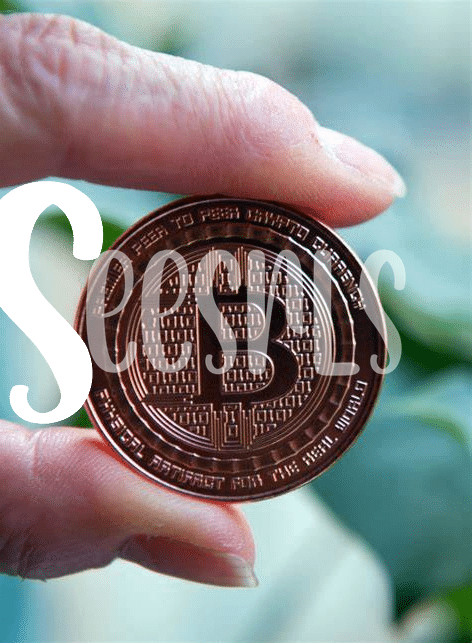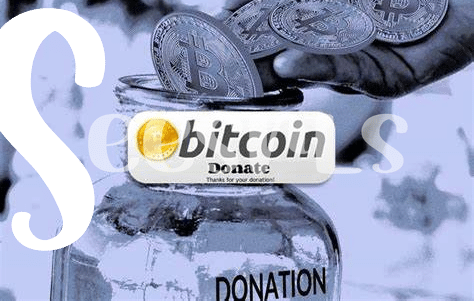Bitcoin: Shaking up the Political Fundraising Game 🚀

Imagine a world where supporting your favorite political figure doesn’t require a big checkbook, but just a bit of digital know-how. With the advent of Bitcoin, the arena of political fundraising is witnessing a seismic shift. This game-changing digital currency is not only making it easier for anyone, anywhere, to throw financial support behind their candidates of choice, but it’s also reshaping the landscape of campaign finance in a big way. Unlike the traditional routes, which often involve a maze of regulations, Bitcoin offers a straightforward path. The beauty of it lies in its ability to circumvent the traditional financial institutions, breaking down the barriers that once made political donations a playground for the wealthy. Now, what this means for political campaigns is huge. We’re talking about a broader base of support, more diverse funding sources, and a genuine opportunity for grassroots movements to gain momentum 🌱. Plus, the global nature of Bitcoin opens the door for international support in local elections, adding a whole new dimension to the term ‘political contributor’ 🌐. It’s clear, Bitcoin is revolutionizing how we think about supporting political campaigns, making it an inclusive venture rather than an exclusive club.
| Benefit | Explanation |
|---|---|
| Inclusivity | Bitcoin donations lower the financial threshold for political contributions, inviting wider public participation. |
| Global Reach | Supporters from around the world can contribute to local elections, broadening the pool of political donors. |
| Financial Efficiency | With lower processing fees compared to traditional banking methods, more funds go directly to the campaign. |
Transparency and Anonymity: a Double-edged Sword 🔍
In the world of political donations, Bitcoin is like a double-edged sword. On one hand, it brings a level of transparency never seen before. Imagine being able to see, without any doubt, where every penny of a donation comes from. It’s a big win for keeping things clean and honest. But then, there’s the other side of the coin – anonymity. This feature of Bitcoin allows donors to give money without revealing their identities, which can make things a bit murky. It’s like having a superhero power; used for good, it can change the world, but in the wrong hands, it could lead to some shady dealings.
To understand the ins and outs of this complex topic, including the potential risks and rewards, visit https://wikicrypto.news/bitcoin-ransomware-attacks-prevention-and-response-strategies. The balance between openness and privacy is delicate. On the bright side, this balance can encourage more people to contribute to political causes since they can choose how much of their identity to share. But this same feature demands strict oversight. Navigating between these opposing forces isn’t easy, but it’s essential for maintaining the integrity of political fundraising in the age of digital currency.
Lowering Barriers: Global Participation in Local Elections 🌍

Imagine a world where your favorite candidate in a city thousands of miles away can receive your support with just a click. This isn’t a distant reality anymore, thanks to Bitcoin. This digital currency is breaking down the traditional walls that limited political contributions to locals only. Now, someone in Paris can easily support a mayoral candidate in New York, making the political arena more inclusive and diversified. This global participation enriches local governance by bringing in a wide array of perspectives and financial backing from across the world.
However, this newfound power does come with its challenges. Questions about fairness and the influence of foreign money in local elections emerge. It’s a balancing act between opening up the political funding playground to the world and preserving the foundational principles of local democracy. Yet, the undeniable impact of allowing broader, more inclusive support for political campaigns cannot be overlooked. As we navigate through these waters, the potential for creating more connected and globally influenced local elections is an exciting prospect.
The Ripple Effect: Bitcoin’s Influence on Voter Power 💪

Imagine a world where your support for a political candidate isn’t limited by where you live or how much money you have in your bank account. That’s the ripple effect of using Bitcoin in political donations. Now, supporters from anywhere around the globe can contribute to their preferred candidates. This newfound power boosts the voices of ordinary people, making politics a bit more accessible to everyone. It’s a grassroots revolution, powered by digital currency, that brings new meaning to voter influence and engagement.
However, with great power comes great responsibility, and the shift towards Bitcoin in political fundraising brings its own set of challenges. Making sure that this power stays in the right hands requires constant vigilance and adaptation. For more insights into how digital currencies like Bitcoin are reshaping our world in interesting ways, including their role in pivotal bitcoin halving events suggestions. As the landscape evolves, so does our understanding of what it means to participate in the democratic process, ushering in a new era of political empowerment. 🌐✊
Regulatory Hurdles: Navigating the Legal Landscape 🚧
Walking through the world of political donations with Bitcoin is like navigating a maze full of hidden turns. It seems clear and straightforward at first—money from a digital wallet goes into supporting a political campaign. However, toss in the legal frameworks of various countries, and it feels like suddenly running into a wall. Different places have different rules about who can give money to politicians and how much they can part with. With Bitcoin, it’s tricky because it’s not always easy to see where the money’s coming from, making some folks in charge of the rules scratch their heads in puzzlement.
Here’s where it gets interesting. Governments are trying to figure out how to apply old rules to this new digital player. Some are welcoming, seeing the potential for transparency and inclusion. Others put up roadblocks, worried about the shadows where misconduct could hide. The table below shows a quick glance at this landscape:
| Country | Stance on Crypto Political Donations | Key Concerns |
|---|---|---|
| USA | Mixed, varies by state | Transparency, foreign influence |
| Japan | Generally positive | Regulatory oversight |
| Germany | Cautious | Anonymity, legal compliance |
As folks in suits scramble to update laws, the big question hangs in the air: Can the rhythm of political donations dance in sync with the digital beat of cryptocurrencies? We’re witnessing a fascinating crossroads of technology and governance, with each step forward closely watched by those who believe in the power of participation and those who guard the gates of integrity.
The Future of Campaign Finance with Cryptocurrency 💡

As we peer into the crystal ball to glimpse the future of campaign finance, it’s clear that digital currencies like Bitcoin are poised to revolutionize how we think about supporting our favorite political causes. Imagine a world where crowdfunding a campaign is as easy as sending a tweet, where your support can cross borders without the hassle of exchange rates or international regulations. This isn’t just about making donations easier; it’s about opening up the political process to more people than ever before. With tools like bitcoin and financial inclusion suggestions, even those in underserved communities could have a louder voice in the democratic process. However, this bright future isn’t without its shadows. Concerns about bitcoin and cybercrime remind us that with great power comes great responsibility. Ensuring that this new frontier of campaign finance remains safe and inclusive will be crucial. As we navigate these waters, the potential for a more engaged, empowered, and equitable political landscape is immense 🌐💡🚀. But it will take collective effort, innovative thinking, and perhaps most importantly, a commitment to keeping the digital world open and accessible to all.
